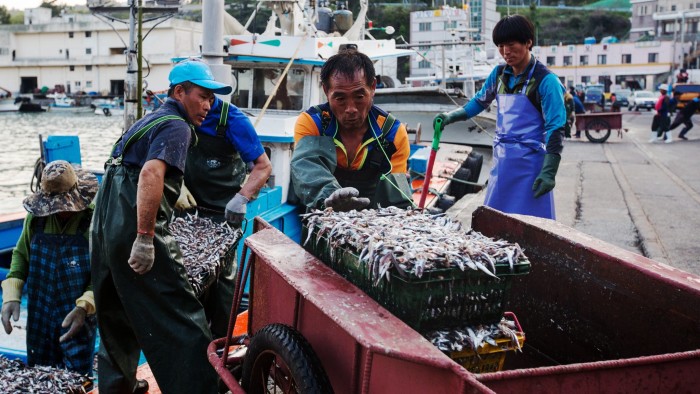South Korea’s deepening economic slowdown deals fresh blow to Park

Roula Khalaf, Editor of the FT, selects her favourite stories in this weekly newsletter.
South Korea’s economic slowdown deepened in the first quarter, with sluggish exports and domestic consumption weighing on growth and adding to pressure on the Bank of Korea to cut interest rates.
The data mark another blow for the administration of Park Geun-hye, which is already reeling from a shock loss of its parliamentary majority this month that has clouded the prospects for its economic reform drive.
Gross domestic product expanded 0.4 per cent quarter-on-quarter in the first three months of the year, after growth of 1.2 per cent and 0.7 per cent in the third and fourth quarters of last year. The annual growth rate was 2.7 per cent.
The weak performance, broadly in line with expectations, came as Asia’s fourth-largest economy suffers a fall in exports amid waning global demand. Exports fell 1.7 per cent in the first quarter, hit by China’s slowing economy.
Weak domestic spending was also a factor, despite a boost in fiscal spending and the reintroduction of consumption tax breaks on cars. Capital investment dropped 5.9 per cent from the previous quarter as global uncertainties deterred Korean companies from investing in new facilities. Consumption fell 0.3 per cent, held back by high household debt.
“The sliding exports are having a negative impact on domestic consumption and corporate investment,” said Ju Won, an analyst at Hyundai Research Institute. “Stimulus measures both on the monetary and fiscal fronts are urgently needed to pull the economy out of the current slump.”
While Lee Ju-yeol, BoK governor, last week expressed optimism over the economy, calls for monetary easing are growing following the ruling party’s defeat in parliamentary elections this month.
“A more fractious parliament is only likely to add to consumer and business uncertainties, further undermining growth prospects,” BNP Paribas said in a recent report.
Last week the BoK left interest rates unchanged at a record low of 1.5 per cent for a 10th straight month, amid concerns about high household debt. But economists expect the bank to cut interest rates at least once this year after it lowered this year’s growth forecast to 2.8 per cent from 3.0 per cent. The economy grew 2.6 per cent last year.
The government is also under pressure to increase public spending. It has allocated more than 40 per cent of this year’s budget to the first quarter but finance minister Yoo Il-ho said the government had no immediate plan for a supplementary budget to stimulate the economy.
However, Kwon Young-sun at Nomura expects a stimulus package including a supplementary budget to be announced as early as June after the new national assembly opens on May 30.
“The election [result] means that President Park’s labour market reforms should lose momentum,” he said. “As a result, the government will probably depend more on macro stimulus to support job markets, rather than politically controversial structural reform, ahead of the 2017 presidential election.”
Comments